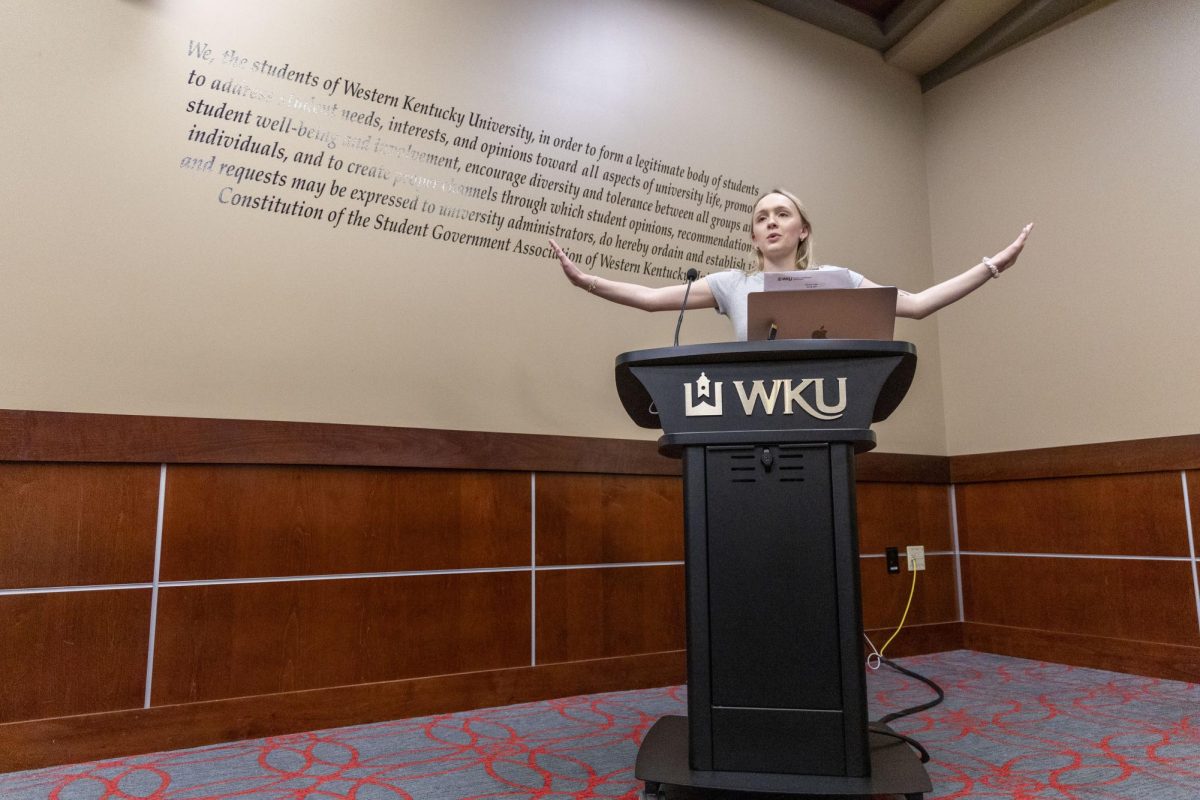Administration plans to offset revenue shortfall
March 3, 2017
Approximately $6.5 million is needed to balance the university budget by the fiscal year end, according to an email President Gary Ransdell sent to WKU faculty and staff this afternoon.
“…we are able to zero in on the degree to which we will need to reallocate funds to cover the tuition revenue shortfall,” Ransdell wrote in the email. “Our fall collections were approximately three percent short of the budget estimate. Spring numbers project to be about five percent short of the budget estimate.”
Ransdell said the cause of the deficit has come from several areas, including approximately 1,000 students who collectively owe the university $2.9 million.
Ransdell also addressed a decrease in enrollment.
“We have not fully offset losses in traditional part-time students and international enrollments, with growth in out-of-state domestic and online enrollments,” Ransdell wrote in the email, adding that all universities in Kentucky are facing declines in in-state enrollments.
While there was an increase in total WKU enrollment this year, that increase came from high school dual credit enrollment. There was a decrease in students not enrolled in dual credit, causing a decrease in revenue.
Fall 2016 enrollment increased by 209 students since the Fall 2015 semester. However, this increase came from dual credit enrollment, which does not produce revenue, as Ransdell pointed out in his email. According to a report from WKU Enrollment, dual credit enrollment increased by nearly 500, and the number of students not enrolled in dual credit decreased by 280.
In the email, Ransdell wrote WKU’s “historic practice of building the coming year’s budget based on the current year’s enrollment is no longer a stable budgeting practice.”
Ransdell also said the Administrative Council has been advised to withhold spending of carry forward funds, which is excess revenue from individual budgets that is returned to the university divisions from which it came, in compliance with WKU’s carry forward policy. Ransdell said he is working with the Administrative Council to offset the shortfall and should be able to finalize the “budget balancing plan” by the end of this month.
In the email, Ransdell also addressed the uncertainty surrounding next year’s tuition increase, set by the Council on Postsecondary Education.
“We are projecting a three percent resident undergraduate increase in order to manage our fixed costs increases,” he wrote. “We will know this key variable of the budget process by late March.”
Ransdell ended the email “on a more positive note,” saying much has been done this year to improve student retention and that “efforts to engage the entire campus are ongoing.”
“We are cautiously optimistic that these efforts will position us more favorably in the new Performance Funding Model, which is making its way through the General Assembly this month, and will yield additional tuition revenue in future years,” Ransdell finished the email.
The Herald will update this story as it develops.












